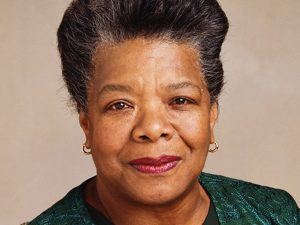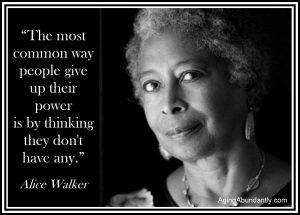As Black History Month slowly comes to a close, it serves as an almost fitting end to the month dedicated to celebrating the achievements of African Americans to write a piece on famous Black writers who influenced decades of literature for future generations. From Nobel Prize winners to double NAACP prize winners, each writer has contributed distinctly to create the African American literary canon.
Maya Angelou
(1928–2014)
Maya Angelou was an incredibly influential American author, actress, screenwriter, dancer, poet, and civil rights activist. Known for her acclaimed 1969 memoir, ‘I Know Why the Caged Bird Sings,’ as well as her other numerous poetry and essay collections, the woman became a well-known figure in her lifetime. Growing up, Angelou had an extremely difficult childhood, including the divorce of her parents at an early age as well as numerous other traumatic experiences that shaped her as a person. She spent almost five years as a mute because of these past experiences. Of course, as an African American growing up in St. Louis, Missouri, Angelou also experienced firsthand racial prejudices and discrimination in Arkansas. However, none of this stopped the woman as her acting career began to take off in the mid-1950s, earning her spots in several movies. She went on to write numerous volumes of autobiography explore the themes of economic, racial, and sexual oppression, as well as receive multiple awards for her work. The woman has become an inspiration even after her death, with her poetry and autobiographies still being highly acclaimed to this day.

Langston Hughes
(1902–1967)

Langston Hughes, although not as well-known as some of the others on this list, has still had a massive impact on both literature and the civil rights movement. He did attend Columbia University in his early life but left after only one year to travel the globe. Hughes quickly became a part of Harlem’s burgeoning cultural movement, what is commonly known as the Harlem Renaissance, and continued to develop his work in poetry and writing along with it. Later on, as Hughes’ work began to reach more people, his poem “The Weary Blues” won first prize in the Opportunity magazine literary competition, and Hughes also received a scholarship to attend Lincoln University, in Pennsylvania. The man was also among the first to use jazz rhythms and dialect to depict the life of urban Black people in his work. Langston Hughes published the second volume of poetry, Fine Clothes to the Jew, in 1927. He went on to write autobiographies, novels, and even lyrics for musicals; much of his work explored urban, working-class Black themes, and addresses racial issues. On May 22, 1967, Hughes died from complications of prostate cancer. As a magnificent tribute to his poetry, his funeral contained little in the way of spoken eulogy but was filled with jazz and blues music. Even today, Langston’s legacy of both his unique inclusion blues and jazz in his work as well as his activist work has left more of a mark than he is credited for.
Alice Walker
(1944–)
Alice Walker is a well-known household name for both poets and novelists, but the Pulitzer Prize-winning African American has done more than enough to earn her reputation. The woman was raised from a poor upbringing, as the eighth child of sharecroppers. After graduating from Sarah Lawrence College, Walker moved to Mississippi and began teaching and publishing her works. Her works are most noted for their insightful treatment of African American culture. The Color Purple, her third and most popular novel, depicts a Black woman’s struggle for racial and sexual equality; the novel was praised for the depth of its female characters, and it was adapted into a popular film and a musical. In fact, it was for that very novel that she became the first African American woman to win the Pulitzer Prize for fiction. Her later novels include The Temple of My Familiar and Possessing the Secret of Joy, followed by many essays, several short stories, and even children’s books. While some reviewers claimed complained that these novels employed New Age abstractions and poorly conceived characters, Walker continued to draw support and praise for championing racial and gender equality in her work. During her entire life, she has been involved with the civil rights movement consistently, teaching at various universities. During this time she also became a major voice in the emerging feminist movement led by mostly white middle-class women. Even in the present day, Alice Walker inspires young writers with her creative vision and drive, rooted in the economic hardship, racial terror, and folk wisdom of African American life and culture.

To wrap it all up, while I only named three writers, Black writers and poets have affected the world of literature and activism for years. These three are great examples of just how much a single person with a pen and paper can influence the world around them, and I hope this inspires you as well. Whether it’s encouraging you to explore the world of writing, or even just motivating you to become more aware of the influence of Black individuals and their contributions, every bit will help these writers’ legacies.
